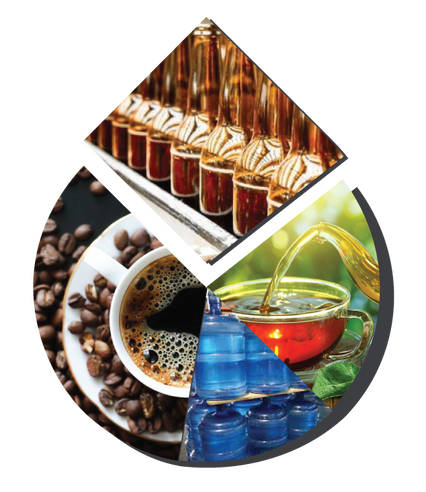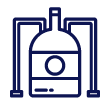Spring Water Uses and EnhancementsSamantha Springs water isn't just for bottled water, it can also be used in many different ways, including but not limited to: Breweries and Distilleries, Coffee, Tea and even Emergency Disaster Water.
Just as naturally occurring springs have long been used as a source of drinking water, so too have they attracted breweries and distilleries who prefer to brew with untreated spring water over tap water for a variety of reasons.
Using Samantha Springs' water for brewing is a practical consideration. Depending on the source, tap water has unpleasant flavors that are either inherent in the water source or derived from disinfectants at a treatment plant. While some undesirable flavors may boil off, others may not. The disinfectant chloramine, for example, may trigger reactions in brewing that can harm beer flavor. Since beer is predominantly water, brewing with aesthetically inferior water is likely to produce less-than-stellar beer. Samantha Springs' water becomes the better choice by being free of any added chemicals like chlorine that can hinder the results of a perfect brew. |
|
|
Water is arguably the most important ingredient that goes into making a cup of coffee, besides the coffee itself. Samantha Springs’ water is not only great for the taste of the coffee, but its composition can help extend the life of coffee machines when compared to tap water. Everyone has seen the lime scale that builds up on kettles when they boil water in them, as well as coffee percolators. Over time this will ruin the filter and other parts. It can be a hassle to clean off, in many cases requiring special equipment.
However, using spring water for both making the coffee and rinsing it out after washing can help save time and money of maintaining coffee makers. Those who have hard water in their area are especially advised to clean their coffee percolators regularly as the mineral deposits are twice as bad. And they will need to use the special cleanser at double strength. Using the wrong water can ruin a beautiful coffee and nobody wants to see that happen. It has always been said that the best water for brewing tea came from swiftly moving mountain streams. Given that few of us have access to clean, fresh mountain water for tea today, you will have to use a different source that can get you the same results. If you have bad tap water, you may want to consider using Samantha Springs’ water to brew tea. Mineral water is too hard (mineral-rich) and may leave your tea tasting metallic or harsh. Distilled water is too soft (low in minerals) and will brew into flat-tasting tea. Quality spring water is the optimal bottled water for making delicious tea.
If you drink tea — particularly green tea — primarily for the health benefits, you’ll get more bang for your buck if you brew it with bottled water. Tea contains a host of catechins — compounds which have quite a dramatic antioxidant effect, and which are therefore a big source of tea’s health properties. Spring water contains the perfect alkalinity and minerals for producing the best flavor, color, and aroma of tea, while maintaining any health benefits. |




